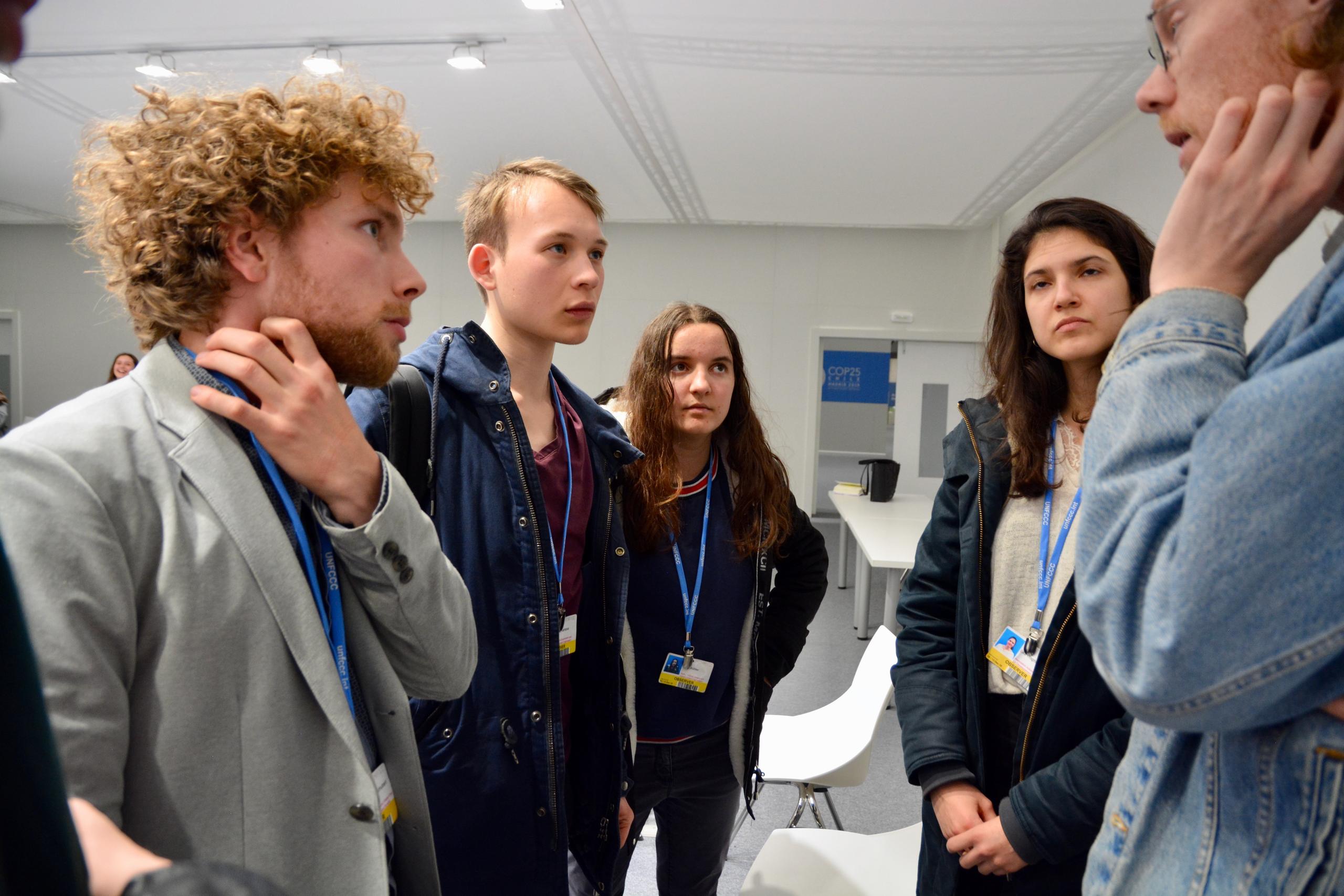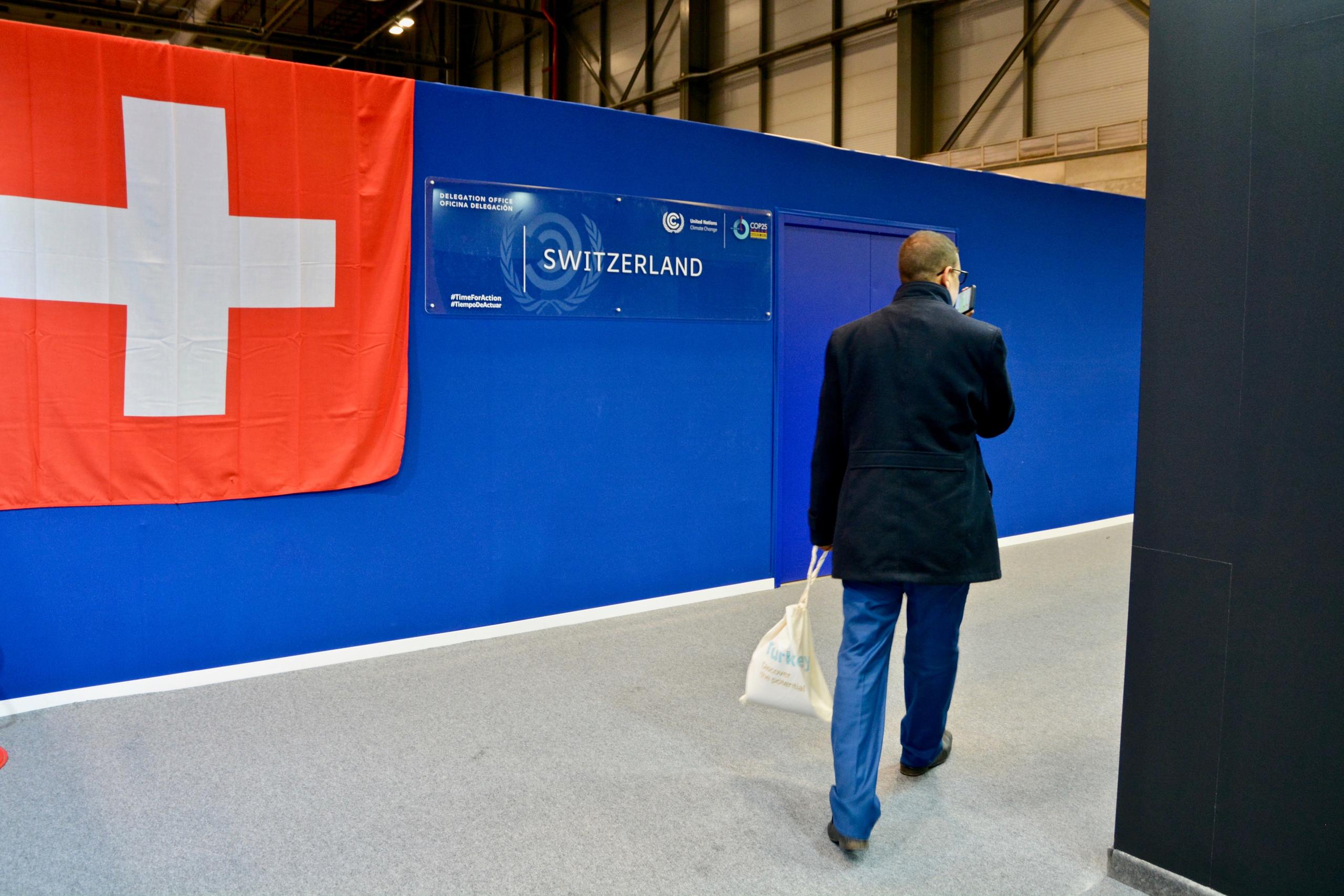
‘Where is the action?’ Swiss youth leaders frustrated as climate talks end

Empowered by having put climate issues at the centre of recent parliamentary elections in Switzerland, youth leaders who travelled to Madrid to attend the United Nations climate talks say they are frustrated – and tired – following discussions by negotiators.
“Over the past two weeks, there have been lots of empty words,” said Lena Bühler, a 16-year-old high school student from the Swiss capital Bern. She notes that the most action on climate change in the past year has been taken by young activists from the Fridays for FutureExternal link movement launched by Swedish teen Greta Thunberg, and by indigenous peoples who are increasingly impacted by the effects of global warming.
After the 2015 Paris Agreement pledged to limit the global temperature rise to 1.5 degrees Celsius on average, international negotiators at the COP25 have been discussing ways to implement the pledge amid current predictions of a three-degree increase by the end of the century. These include the use of carbon credits and how developed countries will fund loss and damage resulting from the effects of climate change.
Marc Chardonnens, Swiss state secretary at the environment ministry, says that a 1.5-degree average rise in global temperature would amount to a three-degree increase in the Alpine nation.
It’s something Bühler and her peers are acutely aware of. She met with several dozen representatives of youth groups from around the world Thursday evening to plan a protest outside the vast IFEMA conference complex located in the outskirts of Madrid.
“Many people say that we have a voice. But I don’t think that they really listen to our message,” the Bern student said. “It is important that we recognise that and that we continue striking and pressure these people.”
Expectation and reality
As the COP25 talks opened, United Nations Secretary General Antonio Guterres contrasted political and economic will with the leadership and the mobilisation of global youth movements.
“Public opinion is waking up everywhere. Young people are showing remarkable leadership and mobilisation,” he said. But what’s lacking, he added, is political will to tax carbon and stop fossil fuel subsidies.
On her 24-hour bus trip to Madrid from Switzerland, Bühler was joined by 18-year-old Lukas Wirth from Zurich. While he initially found the huge conference centre overwhelming, he says he soon realised that “When you enter the official area, there are pavilions set up by countries which are trying to say they are the greenest, but those countries do not have any concrete climate plans. Where is the action?”
In addition to individual country pavilions, originations like the Geneva-based IETA, or the International Emissions Trading Association, also have stands at the Madrid conference. IETA’s members include energy companies such as BP, Chevron, Shell as well as Swiss cement giant Holcim.
“I am shocked at the greenwashing here,” Bühler said. “There are lobbyists here who have the space to present themselves. They should not have those spaces, because they are not solving the climate crisis.”
“The youth process has been a stimulant,” said Franz Perrez, Switzerland’s chief negotiator in Madrid, noting that young protesters have had an impact on political positions in Switzerland. However, Switzerland’s negotiating position was already defined before the COP25 began.
“It doesn’t mean that we do not hear them,” he said of the young protesters. “It is important to maintain public attention and pressure beyond the negotiations on the concrete policies of countries.”

More
Swiss seek compromise amid ‘lack of will’ at climate talks
Forming alliances
A focus at this year’s UN climate summit was Latin America and indigenous communities in the region, who are on the frontlines of the climate crisis.
Although they’re frustrated by the lack of action at COP25, Bühler and Wirth said they were satisfied at how the youth movement here has formed an alliance with such indigenous groups.
“We have been speaking eye-to-eye,” said Wirth. “I realise that coming from Switzerland, I am somewhat privileged, but it is important to know how I can use that. There are things I can do to help, which they may not be able to do, and we should find out how we can use that power to help them.”

In compliance with the JTI standards
More: SWI swissinfo.ch certified by the Journalism Trust Initiative





























You can find an overview of ongoing debates with our journalists here . Please join us!
If you want to start a conversation about a topic raised in this article or want to report factual errors, email us at english@swissinfo.ch.